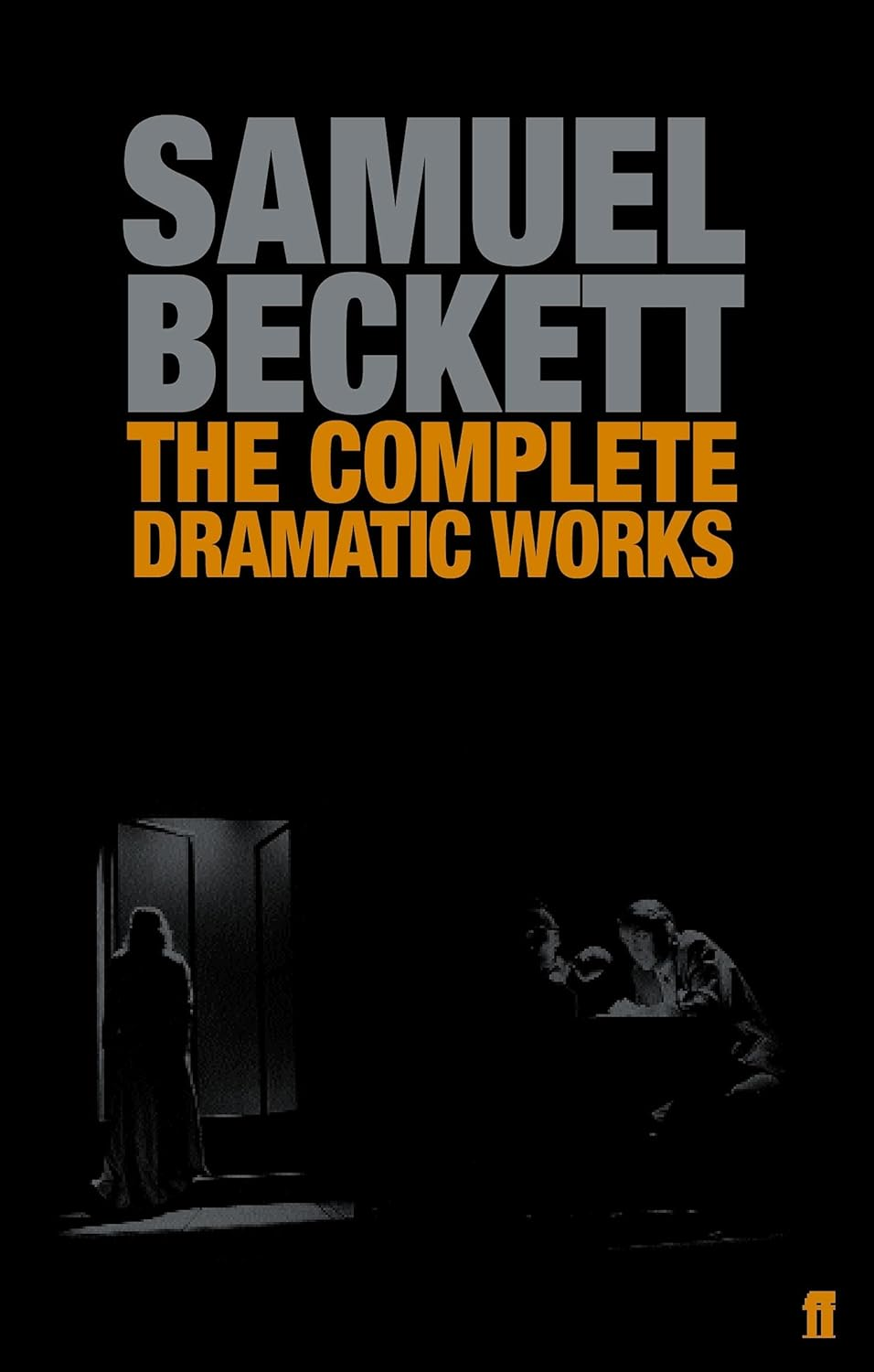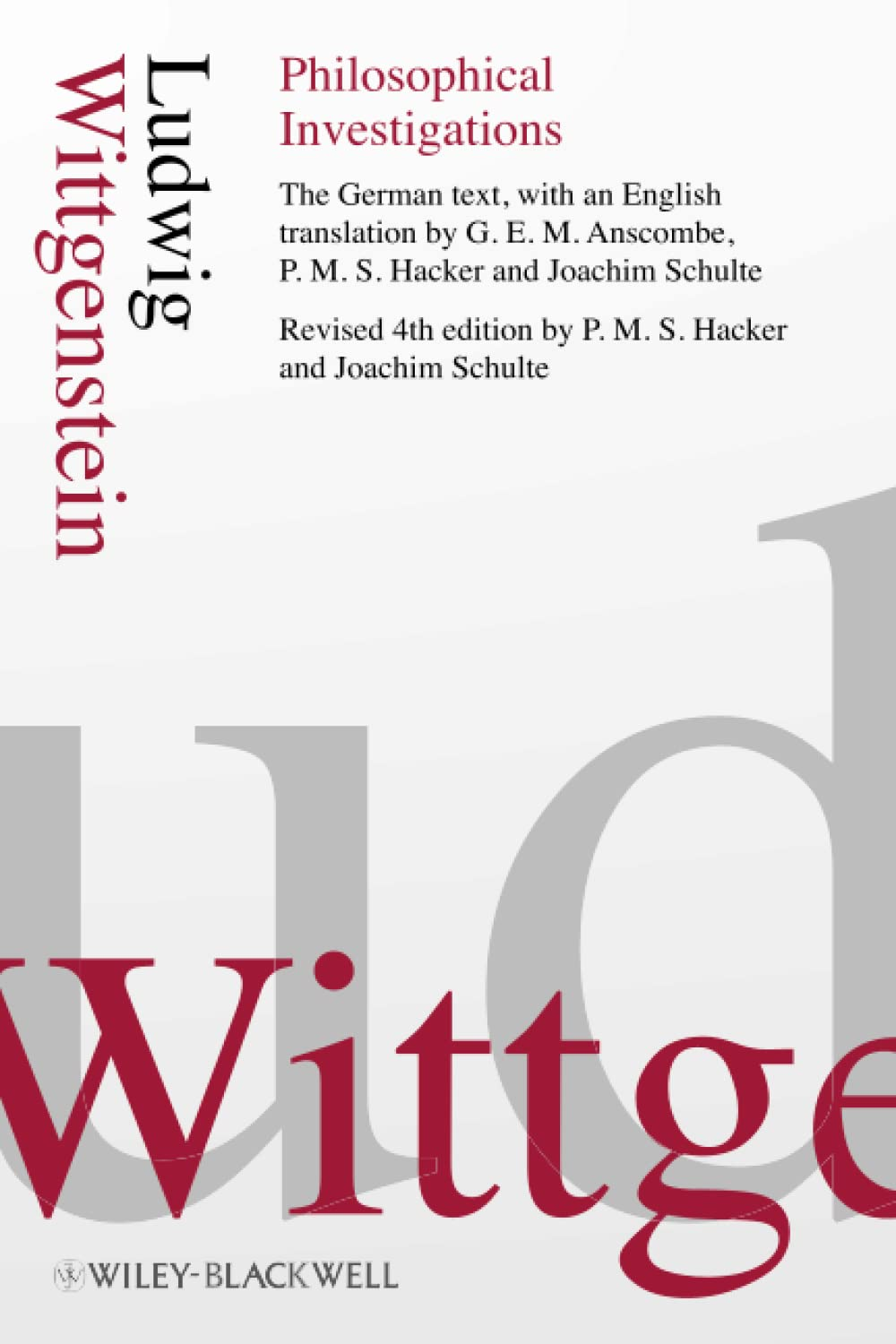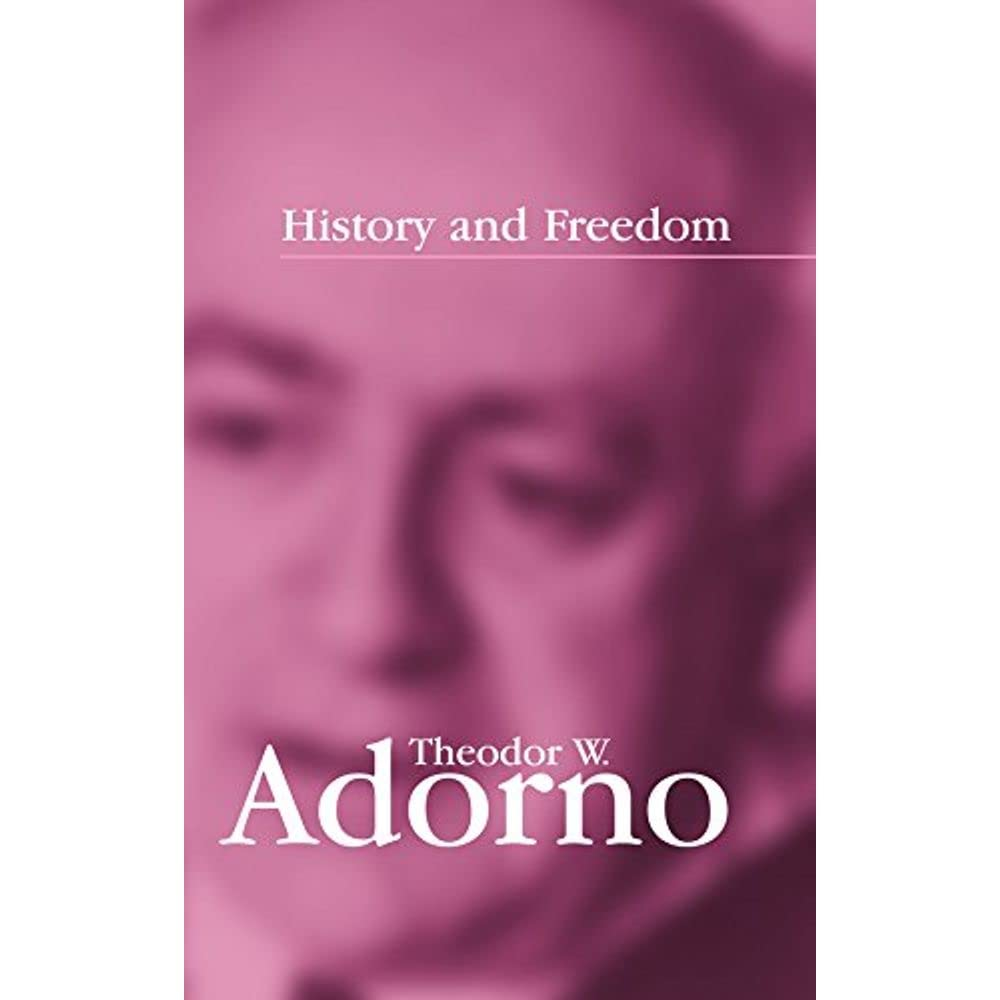Philosophy, Apocalypse and Revolution
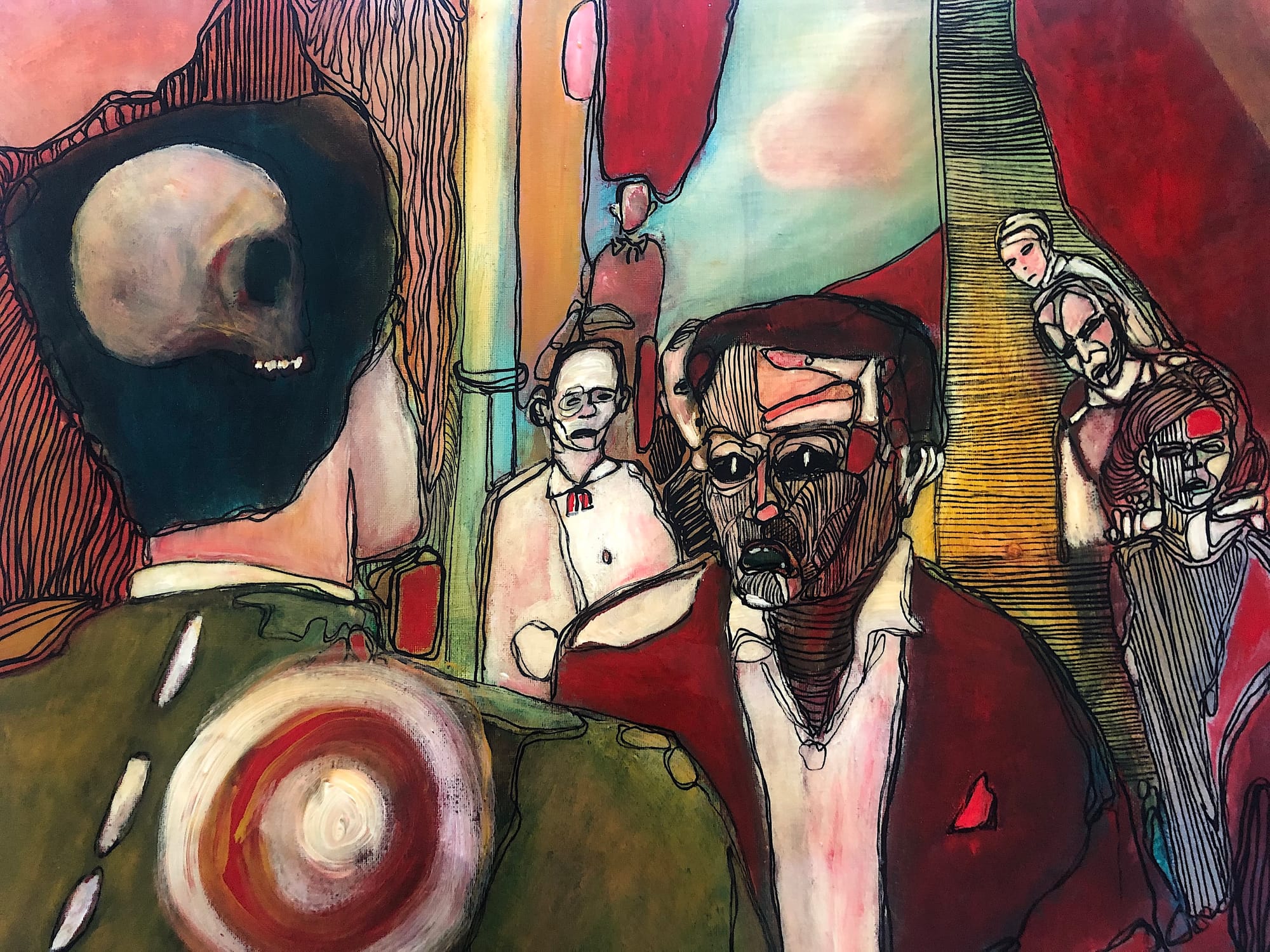
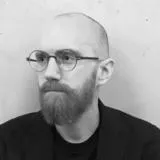
'The subject, as Lacan never tires of stressing, is not, first and foremost, a ‘rational’ being, but rather a constitutively divided speaking being: a subject of the unconscious and the death drive. If this human subject seeks anything it is not ‘happiness’ or ‘the good life’, but primarily its own jouissance, which can often be highly destructive. '
'Returning to some of the language that we find in the Marxist philosopher Georg Lukács, we might say that we need to challenge ‘petrified factuality’: ‘facts’ never stand on their own; their meanings only emerge within a broader context. And, moreover, ‘facts’ have to be recognized and ‘transcended’ at the same time. This requires a different kind of looking.'
'My emphasis, at certain points in the book, on the need to ‘cultivate the utopian imagination’ is no doubt historically specific: it was written at a point when various ‘left populisms’ (notably the campaigns of Corbyn and Sanders) were in the ascendency. While I was (tactically) supportive of these movements, I also wanted to stress their limitations: to remind readers that they were instances of political misrecognition, blind to the fact that the ‘excesses’ of capitalism could not be ‘cured’ by a ‘radicalization’ of existing liberal democracy. Indeed, what these movements took to the ‘pathological’ symptoms of the system were in fact only evidence that it was working perfectly ‘normally’. '
'... the struggle for ‘right life’ is nothing less than the struggle for a new politics. But such a struggle does not completely discard the ethical. Far from it. All movements aimed at radical transformation begin from the premise (acknowledge or not) that that there is a ‘wrong’ state of things that needs to be negated or transcended, and, therefore, that there is the possibility of a better state of things that is worth the commitment and pain of fighting for.'
Ben Ware s the Co-Director of the Centre for Philosophy and the Visual Arts (CPVA) at King’s College London. He received his PhD from the University of Manchester, where he was also a Leverhulme Early Career Research Fellow. Ben has published widely on modern European philosophy, the philosophy of Wittgenstein, continental critical theory and modernist aesthetics. Here he discusses 'the crisis of today', a renewed synthesis of Marx and Lacan, time and revolutionary criticism, class struggle and a dialectic of extinction, the role of psychoanalysis, Kafka and the role of despair, Francis Bacon, the relationship between modernism and ethics, Cavell on Beckett, and finally why the analytic/continental divide is so destructive for philosophy.
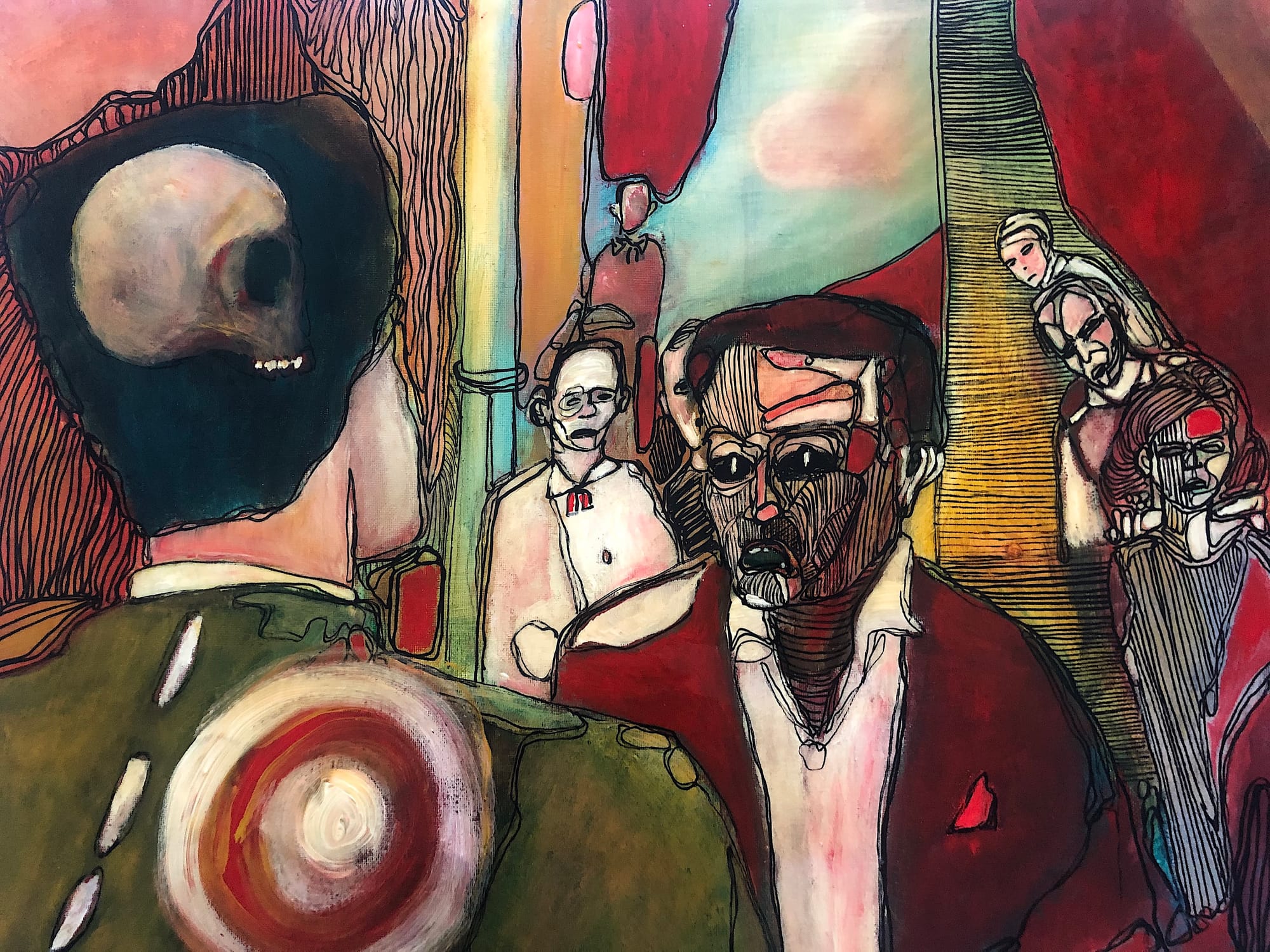
3:16: What made you become a philosopher?
Ben Ware: After 10 years of Lacanian psychoanalysis, I still don’t know that I can give an adequate answer to that question. Growing up in a working-class family in the North of England, I was, like many of the creatures in Kafka’s short stories, always looking for a line of escape. Having found partial exit routes through football and music, I eventually found a lasting one via philosophy, thankfully at a relatively young age. My first philosophy teacher, who taught me A level at the local sixth form college at the start of the New Labour era, was, quite by chance, a Marxist intellectual, as knowledgeable about Lenin and Trotsky as he was about Kant and Aristotle. On picket lines, as well as in the classroom, he introduced me not only to Marx, but also to figures like Hegel and Wittgenstein (who, of course, I could hardly understand at that time). On learning that I was also studying English Literature, he pointed me in the direction of Raymond Williams, Terry Eagleton, and Fredric Jameson, which, at a very early stage in my thinking, totally transformed my understanding of the stakes of reading fiction and engaging with questions of culture. All of which is to say that my philosophical ‘awakening’ was inseparable from my political ‘awakening’; and that philosophy, politics, and culture were all inextricably tied together. Brecht famously said that ‘reading is class struggle’; however, in my case beginning to read – and to read seriously – involved active participation in class struggle itself, in revolutionary politics. The latter gave me the necessary discipline to undertake the former. As an undergraduate, three figures became crucial for me: Wittgenstein, Freud, and Walter Benjamin (on whom I wrote my undergraduate dissertation). Whereas previously these three had simply been ‘enigmatic signifiers’, I was now in a position to begin to understand some of what they had to say, and to make connections between them.
The means of making these connections was a growing interest in the politics and aesthetics of modernism and the avant-garde, which continues to undergird a lot of my thinking today. After graduation, I went up to Manchester to pursue post-graduate work with Terry Eagleton, where I got caught up in a kind of theory mania. I ended up completely burning out at the end of my MA. After taking a couple of years off – during which time I published and edited an unexpectedly well-received literary and politics journal – I returned to write a PhD thesis (supervised by Eagleton) on Wittgenstein, Marx, and modernism. My view of philosophy has always been that it is both a transdisciplinary and a militant activity: concerned with both interpreting the world and attempting to change it. The activity of radical critique (or ‘ruthless criticism’, as Marx referred to it in a letter to Arnold Ruge) can itself produce a cut in our present ‘reality’, a disruption of what we perceive as fixed ‘second nature’. Needless to say, this is not a view that is widely shared by most academic philosophers today; nor is it one that is particularly welcome within the academy itself. My response has been to start writing books and essays that aren’t, strictly speaking, ‘academic’ – but which are, I think, even more philosophically interesting, precisely because they have made the break with certain institutional conventions. Placing myself in this new symbolic position has felt like a total liberation: a rediscovery of the profound enjoyment that politically engaged philosophizing can bring to life.
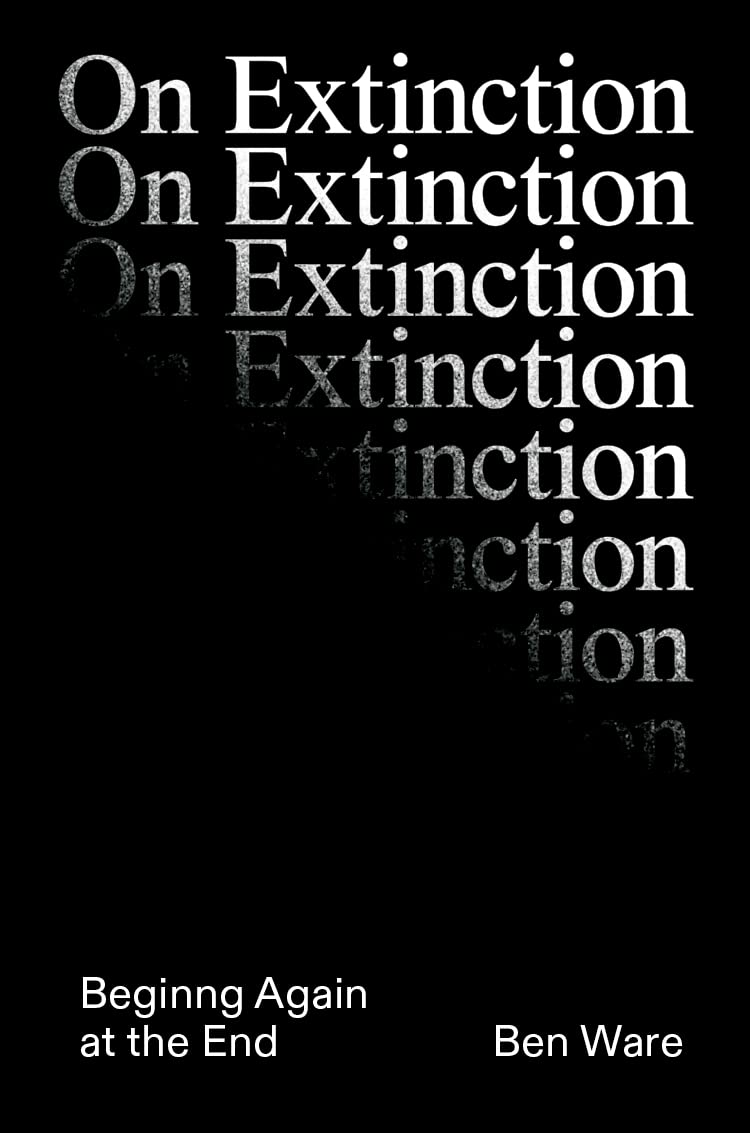
3:16: Your new book “On Extinction’ is concerned with what you see as ‘our crisis-ridden present’ and you say that it’s premise is a wager ‘that it is only by seeing our crisis ridden present from sidewise on – through the ‘distorting’ lens of philosophy and culture – that we can come to see clearly and thus discover new openings for political thought and action.’ So let’s start with this wager – can you sketch for us what you see as the crisis and why you think philosophy and culture are fruitful lenses to try and understand options facing us?
BW: Well, to begin with the first part of that question, the crisis today is what is now painfully clear to almost all of us: climate and ecological catastrophe, new geo-political conflicts (with so-called ‘liberal’ states now actively supporting genocide), accelerating economic and social misery. Clearly none one of this stuff is going away; nor, I would argue, can it be ‘fixed’ within the existing framework. What is required, to appropriate the language of the Frankfurt School, is an abolition of the present state of things (which is, I think, a much less unrealistic proposition than it might sound). It is on account of this that I find the reach-me-down utopianism that still pervades a lot of so-called radical theory totally inadequate. Instead, we need to think much more concretely where politics is concerned. This means a renewed interest in questions of class, ideology, crisis, fascism, revolution, and violence; not to mention issues of ecology, war, and the contemporary psycho-culture industry.
To grasp any of this in a fully serious way, a renewed synthesis of Marx and Lacan is going to be essential; not to mention one more effort to alive keep a number of ‘old fashioned’ concepts, not least the dialectic and the unconscious: ideas largely dismissed today as so many relics of an ‘outmoded’, ‘paranoid’ style of theorizing. And this, of course, is just to get our theoretical bearings – the issue of collective political organizing will be an entirely different matter. The second part of your questions (looking at things through the ‘distorting’ lens of philosophy and culture) perhaps raises the issue of what it means to ‘look’ at anything at all. There is sometimes a belief that what people require are ‘facts’, the more the better; and that once these facts are seen – and seen clearly – then people’s perspective on things will change. This is a particularly common view within a great deal of contemporary ecological/climate scholarship.
For example, in David Wallace-Wells’s recent book The Uninhabitable Earth, we encounter the following: ‘With CO2 at 930 parts per million…cognitive ability declines by 21%’; ‘By the 2090s, as many as 2 million people globally will be breathing air above the WHO safe level’; ‘There is a 51% chance …that climate change will reduce global output by more than 20% by 2100’; ‘14% of real estate in Miami Beach could be flooded by 2045’; ‘Should the planet warm 3.7 degrees…climate change damages could total $551 trillion – nearly twice as much wealth as exists in the world today’. The reader is presented here with page after page of eco-facts; and while these facts are meant to awaken us to the seriousness of the climate and ecological emergency, they actually work in the opposite way: they accumulate in a surreal and blinding manner, obscuring the bigger political picture. Returning to some of the language that we find in the Marxist philosopher Georg Lukács, we might say that we need to challenge ‘petrified factuality’: ‘facts’ never stand on their own; their meanings only emerge within a broader context. And, moreover, ‘facts’ have to be recognized and ‘transcended’ at the same time. This requires a different kind of looking.
An obvious example to give here (and one which Lacan makes repeated use of) is Hans Holbein’s famous 1533 painting The Ambassadors. In the painting, the oblique object in the foreground is revealed to be a human skull only when the painting is viewed from a certain, skewed perspective. Looked at face on, it appears only as a grey-brown smear and the essential element of the work is missed. Looking from an unconventional angle is thus a condition of possibility of responding to the work itself. The same, then, might be said of our current political and social situation: to avoid being consumed by the presentness of the present (the present as a state of almost blinding immediacy), we need to look (and therefore think) in a different way; and this is precisely what philosophy, psychoanalysis and culture, all working together, have the unique capacity to facilitate
3:16: Time is a key to your explorations isn’t it – and you put together ideas of time gathered under a melancholic ‘too late’ scenario with a time of hyperactive ‘act now’. Can you explain these, and say why you load both with value judgments – ‘melancholic inaction’ and ‘narcissistic hyperactivity’ – and then say what a better way of understanding time would be for the present – what you call a dialectics of time in the sense of Marx’s ‘conscious completion of old works’?
BW: As you say, the issue of temporality is key to the book as a whole. In fact, this is somewhat strange, as it didn’t occur to me that I was writing about time until it was already too late! Fredric Jameson has a nice line in his early work where he says that the task of revolutionary criticism is ‘to make time and history appear’. This, certainly, is one of the things that the book is striving to achieve. As I say in the Preface, time today appears strange in a double sense: we are told that it’s either ‘too late’ (everything is already finished), or that time is running out and we must therefore ‘act now’; while ‘too late’ leads in the direction of melancholic inaction, ‘act now’ initiates various forms of narcissistic hyperactivity. But both of these positions should, I argue, be read as symptoms: symptoms of the fact that, temporally speaking, we now appear to find ourselves stuck within an arrested time: an ever-expanding present, that has the character of a strange limbo state. We thus need to ask how we might emerge from this condition of stuckness? How we might imagine new forms of collective time opening up?
Walter Benjamin points us in an interesting direction here. His argument, which I develop in my own way in the book, is that we should think about the collective future not as a leap into some great unknown, but rather as a process that involves the repetition and completion of the unfinished past. In this respect, we free ourselves from problematic ideas of ‘progress’ by aiming to actualize alternative potentialities that still lie unrealized in history. This is a wonderfully dialectical sense of time. It opens up the possibility that the great emancipatory events of the past, from the Paris Commune to decolonial struggles, still, in a certain sense, lie ahead of us in time, waiting to be brought explosively back to life. What we must seek to liberate, then, is that which was never fully born, whose very trace has, in certain instances, now been forgotten or repressed. This brushes completely against the grain of all bourgeois notions of political temporality; and it is one that we will need to develop if we are going to be able to imagine a future that is not simply an extension of the blighted present.
3:16: You write about a dialectic of extinction and start with Kant’s essay ‘The End of All Things.’ Take us through your thinking that takes us from Kant via a whole range of thinkers and writers of the modernist canon (Kafka, Wittgenstein, Adorno, Blanchot etc) to the idea that we need more than a realization of negativity and instead an awareness that ‘this world … can itself be ended … through the conscious intervention into existing conditions…’ where we need to begin at the end.
BW: This is rather a big question, as it takes in most of the first chapter of the book. So maybe I could just focus on this notion of ‘beginning again at the end’ (the book’s subtitle), which is where I end the first chapter, and which then plays an important role throughout On Extinction. We need to go back, once again, to the question of time. One of the things that the book makes clear from the get go is that it is putting forward a new view of the relation between time and catastrophe. Nowadays, we hear a lot about tipping points, climate deadlines, and doomsday clocks. I argue, however, that catastrophe is not some existential dark cloud still looming on our horizon. It has, in one respect at least, already arrived; and it’s already having a determining effect on our social, economic, and political life. And so, the question then becomes: how do we think and how do we act when it’s already too late?
I give a number of answers to this question in the book, some of which we will no doubt get to later on. In chapter one, however, I conclude in a specific way: by going beyond Adorno and Blanchot, and the belief (shared by both, but independently of one another) that looking the threat of extinction in the face (tarrying with the negative, as Hegel puts it in the Phenomenology) is what opens up the possibility of a new global human community, a new totality. I don’t disagree with this entirely, of course, but it remains too politically passive. I argue instead that we need a concrete intervention (i.e. class struggle) that aims at ending this world – a world of converging catastrophes and political stuckness – in order to avert the prospect of the end of the world – understood not as sudden mass death, but rather as the accelerated unravelling of our existing forms of life. Very simply put, then, something new, politically and economically speaking, needs to emerge, needs to be created, if we are to free ourselves from a present that is incurably sick and moving inexorably in the direction of extinction.
3:16: What’s the role of Psychoanalysis in your approach? – you draw on Freud and Lacan and their poetic companions and it’s no surprise that the death drive is a key point in your thinking here. How (and why) should we read Freud and Lacan to understand our predicament?
BW: The first thing to say is that a great deal of philosophy is still highly sceptical of psychoanalysis – and this scepticism goes back a long way. Heidegger is a good example. In his conversations with the Swiss psychiatrist Medard Boss, Heidegger apparently never ceased shaking his head when the topic of psychoanalysis came up: he didn’t believe that someone like Freud could produce such ‘fictitious constructions’ about human beings. Reading Freud, he commented to Boss, made him feel physically ill – and, of course, it wouldn’t be too much of a stretch to see Heidegger’s own antisemitism unconsciously at play here. Freud, for his part, was persistently dismissive of philosophy, despite lifting much from Schopenhauer and Nietzsche. It is therefore, I think, only with the idiosyncratic ‘return to Freud’ carried out by Lacan that the complex relationship between philosophy and psychoanalysis is brought fully to light. Despite Lacan’s repeated claim that ‘psychoanalysis is not philosophy’, and that philosophy itself is a discourse of mastery, he nevertheless develops his theories in a constant and sophisticated dialogue with a range of thinkers, including Plato, Aristotle, Spinoza, Descartes, Kant, Hegel, Marx, Kierkegaard, Frege, Wittgenstein, Heidegger, Sartre, Merleau-Ponty, and Althusser. As I see it, psychoanalysis is crucial primarily for a proper understanding of the human subject today – without it, philosophy and politics both remain lost.
The subject, as Lacan never tires of stressing, is not, first and foremost, a ‘rational’ being, but rather a constitutively divided speaking being: a subject of the unconscious and the death drive. If this human subject seeks anything it is not ‘happiness’ or ‘the good life’, but primarily its own jouissance, which can often be highly destructive. We can speak perhaps more specifically about the kinds of philosophical and political hurdles that psychoanalysis can enable us to overcome. First, it enables us to move decisively beyond the problematic idea that the human subject possesses an essential self – a true, authentic self – beyond social and cultural conventions; a self, as the story often goes, which has now been lost and needs to be recovered. We find this view everywhere from the early Heidegger of Being and Time through to today’s late capitalism and its monetization of so-called authentic lifestyles and authentic consumer products (everything from craft beers to overpriced back to the land vacations). However, while the various philosophies of authenticity remain fixated on the notion of a pure and self-identical subject, Lacan, with great insight, points out that the subject itself emerges only in the field of the Other – that is to say, in language which is never the subject’s own.
Moreover, as Lacan famously states, the subject’s desire is always the ‘desire of the Other’, which means both a desire for recognition from the Other, and a desire for the thing which one takes the Other to desire. It is precisely this complex social dimension of subjectivity – where the subject never coincides with itself – that the philosophy of authenticity completely overlooks. Beginning with a subject that is condemned to see itself emerge only in the field of the Other, a subject who is, to some extent, always a stranger and an enemy to itself, also rules out any final overcoming of ‘alienation’, as wished for by the early Marx, along with figures such as Erich Fromm and many more on todays left. We need instead, I would argue, to distinguish between what I call surplus alienation (the kind produced by capitalist social relations) and constitutive alienation (which is the kind through which we become human subjects in the first place).
There is, of course, much more to say about the relationship between psychoanalysis and politics: some of this I go into in the book; some of it is part of my ongoing project, and is still getting worked out in my thinking. Lacan’s own reading of Marx, for example, is often problematic, and should not be taken at face value. His Seminar XVI, for example, delivered in 1968/69, and the one focussing most closely on Marx’s work, seems to distort the actual workings of capitalism as much as sheds new light on them. However, as you allude to in your question, there is a lot riding on the notion of the death drive in the book (especially in the final two chapters); and this is a concept which many radical theorists still fail to fully grasp. To put the matter briefly, my reading of the death drive departs from the standard one. To speak of the death drive is not, I argue, to evoke some mysterious force aimed at death and destruction; it is not, as it so often figures in the popular imagination, a thrust towards war, aggression, and ecocide. Rather, Lacan speaks of it in two specific ways. In his seminar VII on The Ethics of Psychoanalysis, the death drive is connected to the activity of beginning again, a ‘will to create from zero’, as he puts it. In his later seminar XVII (The Other Side of Psychoanalysis), he connects it to repetition, enjoyment, undeadness, blind persistence, the inability to ever let up.
In this respect, far from aiming at death, the death drive (to paraphrase Žižek and Zupančič) is the very excess of life: what keeps the subject going, in its own unique way, right up to the end and beyond. The death drive is, in fact, wonderfully captured in Beckett’s famous phrase: ‘You must go on. I can’t go. I’ll go on.’ If we combine these two elements of the death drive (beginning again and the will to go on, keep enjoying, keep repeating, beyond ‘reason’) it is clear how the notion becomes vital for the kind of revolutionary politics I am trying to outline.
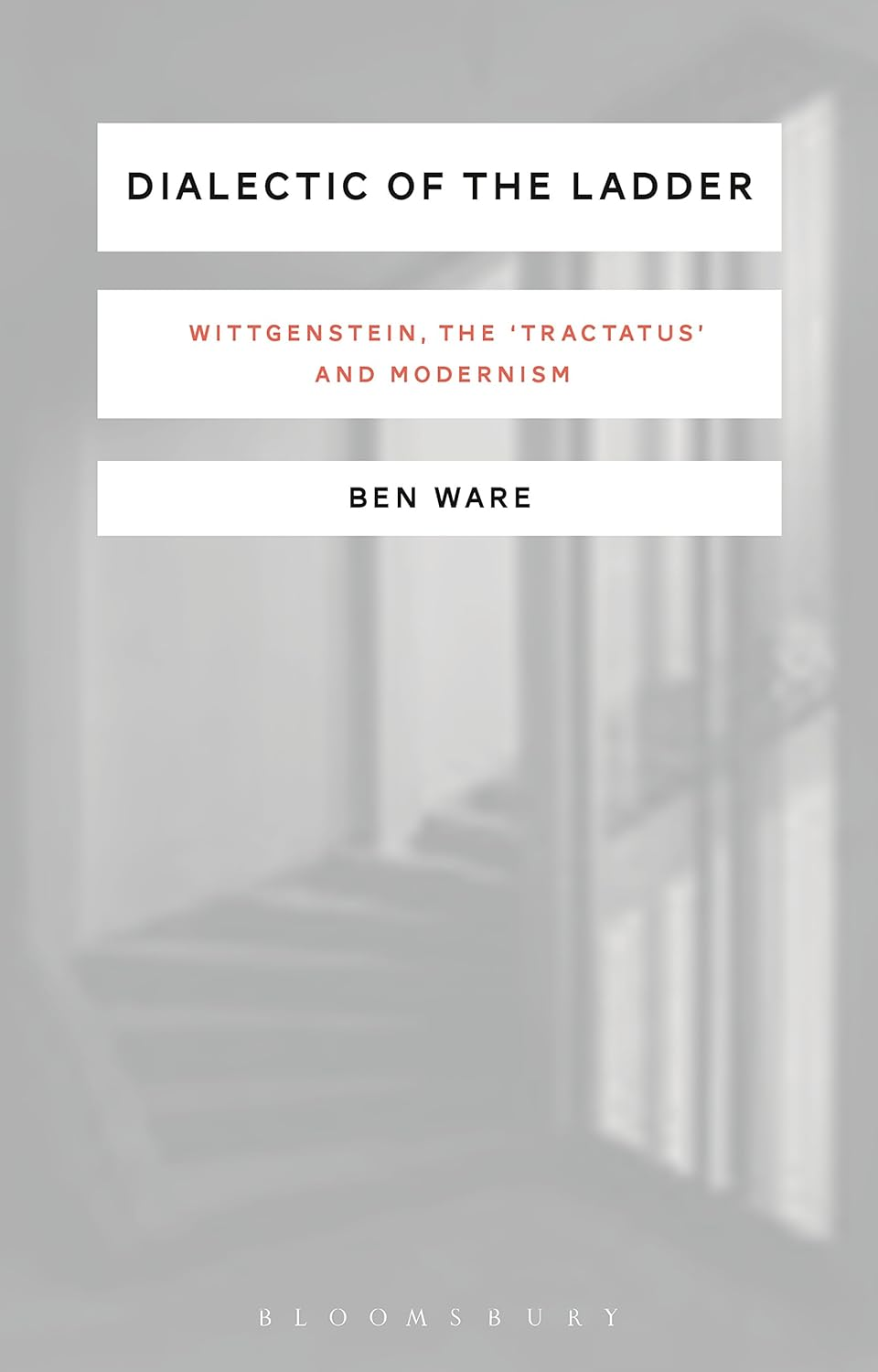
3:16: Kafka is another key witness to your thinking isn’t he and you engage with the idea that ‘hope can only be arrived at by way of despair’. What is fruitful about using this as a starting point to imagine a new beginning in politics and action?
BW: Simply put, I think despair can play a crucial role for radical politics. Hope is a false place to start, a dead end. Despair begins when one’s belief in the system disappears and one comes to reject its endless false promise. It is a revolt against what merely is; a desire, however concealed or inchoate, that things should be otherwise. But, of course, one cannot simply remain there; one needs to make the movement through despair. Kierkegaard – or more specifically Kierkegaard’s pseudonymous authors – have wonderfully insightful things to say on this topic. According to Anti-Climacus (the ‘author’ of Sickness unto Death) despair is the most dangerous illness, which, at the same time, it is the worst misfortune never to have suffered from. The way out of despair, according to Anti-Climacus, can only be through despair itself: one must despair with a vengeance, despair to the full, so that a new spirit might eventually break through from the ground up.
Clearly, then, this dialectical conception of despair is one that can also be linked to the activity of beginning again at the end. To be optimistic about things right now would of course be very strange indeed; however, is it also necessary to avoid enjoying one’s pessimism. As I have always thought, there is a moral obligation to think the possibility of change, and specifically change as a collective endeavour. I think the progression of the book’s final chapter is interesting, considered from this perspective: it begins with despair (and Kafka) and ends with laughter (Marx and Ernst Lubitsch’s Ninotchka). But the two things are both intimately connected: both mark the point at which the subject breaks down in order to break through to some new starting point. This movement, which I also connect to the practice of psychoanalysis itself, is one that interest me a great deal.
3:16: As can be seen from your latest book you’re very interested in philosophy refracted through the modernist canon (I’m using that as a shorthand for the authors and artists that attract you – Benjamin, Bacon, Beckett, Wittgenstein, Kierkegaard, Blanchot, Lacan, Freud, Nietzsche, Marx et al). It’s a very specific library that you draw on – so can you illustrate why its philosophically fruitful to examine someone like the painter Bacon, someone you’ve written quite extensively about. Is it fair to say that you’re not approaching him as a part of just the philosophy of art are you, but see engaging with his work as an engagement with some of the big philosophically (and psychoanalytically) charged concerns of modernist philosophers as well?
BW: Bacon is a painter that one has to approach very carefully. It is important to cut through the cliches. An interesting question to begin with, perhaps, is why is it that so many critics writing about Bacon begin with exactly the same set of ideas and concepts? These ideas derive from statements that Bacon himself makes about his work. Specifically, in his famous interviews with the critic David Sylvester, Bacon claims that the aim of his paintings is to make a violent impact upon the spectator’s ‘nervous system’. Eliminating what he calls the narrative or story-telling aspect of the image, the works, he says, seek to ‘unlock sensation’, to provoke a convulsive shudder in those who encounter them. It is precisely these ideas that are taken up by Gilles Deleuze in his 1981 book on Bacon (Francis Bacon: The Logic of Sensation), where Deleuze argues that what directly interests Bacon is a violence that is involved only with colour and line, not actual physical violence. So Bacon and Deleuze both inherit a particular strand of modernist aesthetic thought: one that evaluates the work of art in terms of its capacity to generate bodily or affective experiences. But this emphasis on sensation and affects, as I have argued in some of my existing work, turns out to be highly problematic, not least because, as Hegel already reminds us in his Lectures of Aesthetics, ‘the investigation of the feelings which art evokes, or is supposed to evoke, does not get us beyond vagueness.’
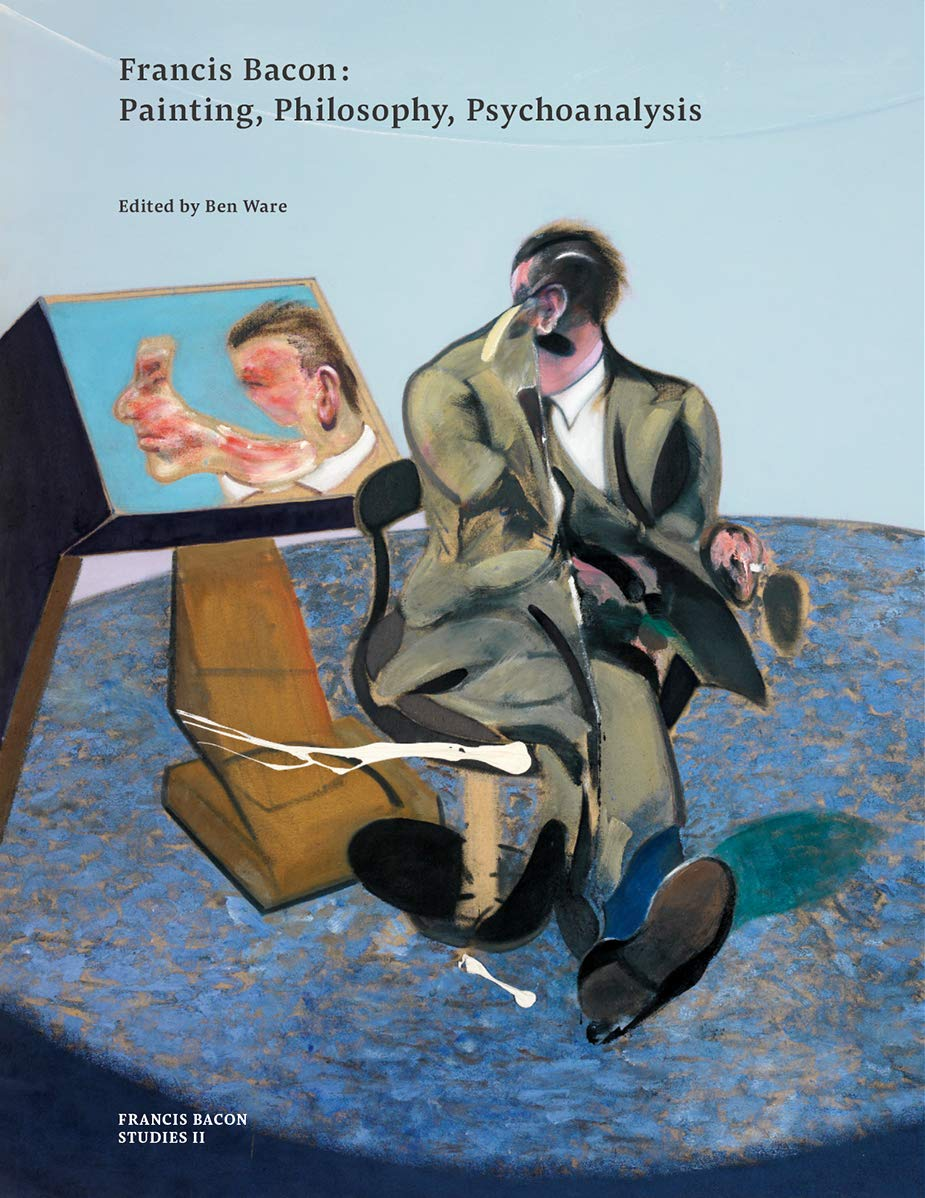
In relation to Bacon, then, we might say that by assigning primacy to the beholder’s singular emotional response to the work, we get no sense of what it is that the paintings actually mean, or what it is that compels our continuing interest in them. Putting the issue somewhat more provocatively, we might say that Bacon gives a modernist account of his own modernism, but this account falls flat, fails to do justice to the full complexity of his work. And so this is precisely where we need philosophy and psychoanalysis to re-enter the frame. Just as Bacon once remarked that the essence or truth of a subject can be found only in the distorted recording of its appearance, so we might propose that it is only through the radical distortions of philosophy and psychoanalysis that we can arrive at any truth regarding Bacon’s art. You can see here my thought once again returning to the same point in different contexts (truth emerging through ‘distortions’ and so on). I do think that Bacon is a philosophically important painter (up there with Matisse and Cezanne); and one who is deeply concerned with issues such as extinction. But here we can be even more specific. In some of his best paintings – which are, I would argue, the smaller scale self-portraits that he produces following the death of his lover George Dyer – there is a wonderful aesthetic/philosophical critique of beauty, and the opening up of a new aesthetics of ugliness. It was, of course, Hegel who spoke of beauty as ‘lacking strength’: it cannot, he argues in the Phenomenology of Spirit, countenance ambiguity and imperfection and must remain, at all costs, absolutely pure.
So what beauty is allergic to is precisely transience: it is incapable of tolerating the idea of its own decomposition and disappearance. But this is what Bacon confronts us with: not in a way that ‘shocks’ us, but in a profound and deeply contemplative way. It is as if Bacon drives even further forward with Hegel’s thesis: beauty is not only weak, it is also on the side of illusion – failing, in its blind positivity, to register any trace of human destruction and domination. In this respect, beauty is on the side on cruelty – and my wager is that Bacon knows this! So we have to face down the ugly: not as something ‘redemptive’ (ugliness promising a new beauty to come), but rather as something that invites us to further philosophical, aesthetic, and political contemplation. Could it be the case that it is only through an encounter with the real of transience that we are reminded of who we really are: bodies made of flesh, tethered to an excess of life, which, in psychoanalytic terms, as I have already noted, goes by the name of the death drive? Moreover, might Bacon’s images of ugliness and destitution bring us, finally, to a new and unexpected threshold: a point from which humanity itself can be imagined otherwise? In addition to all this, I’m currently doing some brand new work on Bacon for a new collection I’m editing (a follow up to Ben Ware (ed) Francis Bacon: Painting, Philosophy, Psychoanalysis (Thames & Hudson, 2019). But on this, I will say no more. The reader will simply have to keep their eyes peeled for the new volume.
3:16: Your book on the political imagination works in this universe too of course. Here you’re looking at the relationship between modernism and ethics and as in On Extinction you think modernism offers a fruitful lens on how to live right. Wittgenstein, Beckett, Kierkegaard, Kant, Cavell, Marx, Henry James and Lacan are the heady mix you use to develop your conclusion that we must re-visit: utopia, repetition, perfectionism, subtraction, negativity, critique, absence, duty, revolution and political love. It’s too much for you to take us through the whole enquiry but pivoting off what you’ve already said, can you rough out for us some of the salient points you make and again reaffirm through an example or two why these thinkers resonate for you?
BW: Well, perhaps the first thing I’d point out about that book (Living Wrong Life Rightly: Modernism, Ethics, and the Political Imagination) is its form. I wrote it relatively quickly (during the period of a Leverhulme Early Career Fellowship) and it came straight after my book on Wittgenstein (Dialectic of the Ladder). The Wittgenstein book is very much an academic monograph – although it is perhaps already clear (by bringing Wittgenstein into dialogue with such thinkers as Adorno, Marx, Freud, and Kafka) that I’m refusing to play the academic game. Living Wrong Life Rightly, by contrast, is a collection of interlocking essays, much more in the style of, say, Lukács’s Soul and Form, Cavell’s Must We Mean What We Say? or Jameson’s Marxism and Form. What I appreciate in all of these texts is that they are, in different ways, deeply philosophical without being academic; there is a great freedom to the ideas (in the case of the Lukács text, it is, of course, from his pre-Marxist period, but it is still immensely interesting to read it against the background of his later work). So already in Living Wrong Life Rightly, I’m deliberately pulling away from what we might call (after Lacan) the ‘discourse of the university’. There is something incredibly stifling about the academic monograph; and, to be honest, given the current state of things within the university sector, I don’t really think that this kind of writing has much of a future. As to the content of the book, at a very general level it is a defence of dialectical criticism, of modernism (specifically what I call ‘modernist philosophy’), of Wittgensteinian aspect-perception; and a demonstration of how all these things can be brought together to open up new avenues of political thought. As I read it back, the influence of Ernst Bloch is much stronger here than it is in my later work.
My emphasis, at certain points in the book, on the need to ‘cultivate the utopian imagination’ is no doubt historically specific: it was written at a point when various ‘left populisms’ (notably the campaigns of Corbyn and Sanders) were in the ascendency. While I was (tactically) supportive of these movements, I also wanted to stress their limitations: to remind readers that they were instances of political misrecognition, blind to the fact that the ‘excesses’ of capitalism could not be ‘cured’ by a ‘radicalization’ of existing liberal democracy. Indeed, what these movements took to the ‘pathological’ symptoms of the system were in fact only evidence that it was working perfectly ‘normally’. Thus, much like the character John Marcher in Henry James’s tale ‘The Beast in the Jungle’, these movements were incapable of naming the actual beast; and, moreover, were unable to see that the beast itself could not be ‘tamed’. Marx, of course, speaks very eloquently of this beast, when he describes capital (and thus capitalism as such) as ‘the vampire that will not let go, while there remains a single muscle, sinew, or drop of blood to be exploited’. It is, he says, ‘a mechanical monster’ whose ‘demonic power’ drains the life-energy from every man, woman, and child who falls under its sway. All of this, of course, brings us directly back to Adorno’s key question (and indeed the question that frames the book as a whole): is it possible to imagine a ‘right life’ in a ‘wrong world’?
And my answer to this, simply put, is that the struggle for ‘right life’ is nothing less than the struggle for a new politics. But such a struggle does not completely discard the ethical. Far from it. All movements aimed at radical transformation begin from the premise (acknowledge or not) that that there is a ‘wrong’ state of things that needs to be negated or transcended, and, therefore, that there is the possibility of a better state of things that is worth the commitment and pain of fighting for. We still need ethics to guide our politics; and a Marxism that wants to get rid of ethics completely only risks replicating the bourgeois, bureaucratic coldness that it strives to overcome.
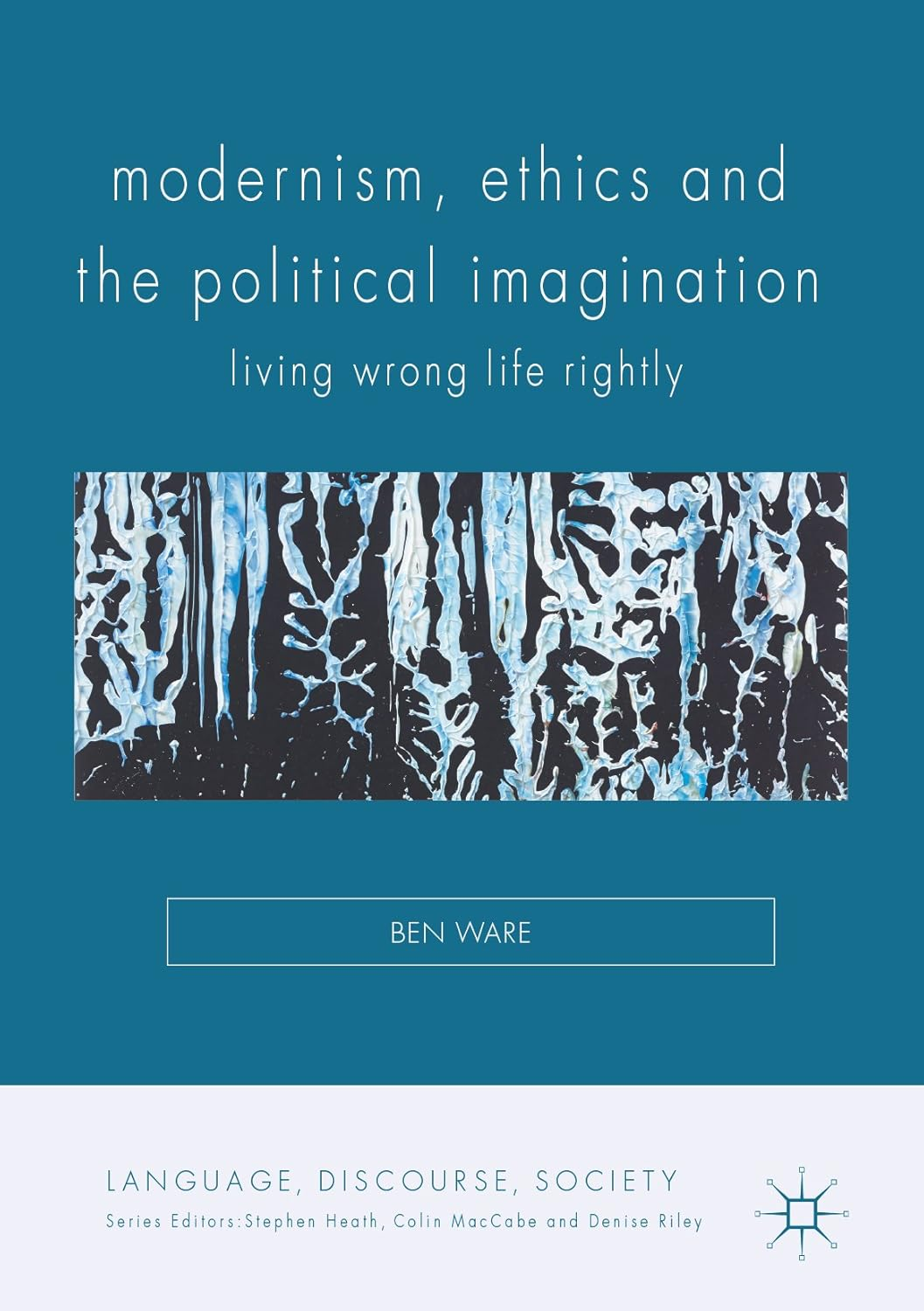
3:16: In Living Wrong Life Rightly you discuss Cavell on Beckett’s Endgame. Can you summarise what you take Cavell to be saying about Beckett here and the notion of perfectionism, and say something also about how this might be a useful notion to advance to excavate a more political reading?
BW: It may sound strange coming from a Marxist philosopher, but I have learned an lot from reading Cavell’s work over many years (thus my reference to Must We Mean What We Say? earlier on). He made a great impression on me when I was working on Wittgenstein; and indeed, my reading of the Tractatus is, at least in part, an attempt to think through how Cavell’s reading of the later Wittgenstein (specifically Philosophical Investigations), might be applied to the early Wittgenstein (Tractatus). Interestingly, however, Cavell will hardly allow himself to speak about the Tractatus, which is somewhat odd, given that Wittgenstein himself says that his later work can only be seen against the background of his earlier thinking. Anyhow, my chapter on Endgame was, in a sense, the sign of a decisive break with Cavell’s thought. Specifically, it began life as a critique of Cavell’s notion of moral perfectionism. Cavell describes perfectionism as a movement towards what Emerson calls ‘an unattained but attainable self’; a movement not from good to bad, or wrong to right, but from ‘confusion and constriction toward self-knowledge’. This, then, is an ethics of self-transformation and self-realization.
While none of the characters in Endgame achieve any kind of perfectionist ideal, Cavell nevertheless regards it as a perfectionist text: evidenced in Hamm ‘disappointment with the world’ alongside his desire for a ‘reform or transfiguration of the world’, clearly demonstrated in his attachment to (endless) speech and storytelling. According to Cavell, Hamm is ‘hung between’: suspended between hope and despair, salvation and damnation, and imagined world and a real one. If one enjoys liberal literary criticism, then, of course, all of this is exemplary. However, I think Cavell misses a lot of what it most interesting about Endgame. Adorno, for example, argues that what Endgame deals with is the ‘dismantling of the subject’: the catastrophes that inspire the play, Adorno says, ‘have shattered the individual whose substantiality and absoluteness was a common thread’ in the existentialist philosophy of Kierkegaard and Sartre. Beckett is, of course, often read (incorrectly) as an existentialist author. But taking a further step beyond Adorno, I think we can also discern a key dialectical move made by the play.
This move can be connected to an earlier remark which Beckett makes in a short piece for radio, ‘Capital of the Ruins’ (1946). Here he speaks of a ‘vision of humanity in ruins’, but at the same time ‘an inkling of the terms in which our human condition might be thought again’. So while Cavell’s perfectionism wants to focus on the dilemmas of the subject as it attempts (and fails) to make its ‘journey upwards’, my own negative-dialectical reading is that what the play demonstrates is how the devastation of humanity in fact opens up a space in which the future of humanity can be imagined otherwise.
3:16: I think when we chatted earlier you were surprised that our philosophical libraries seemed so different – there used to be an analytic/continental divide but it was difficult to know what the distinction was really pointing to. Do you have any thoughts on whether this is a useful distiction anymore?
BW: The short answer is that I take the so-called ‘analytic’/’continental’ divide to be a useless dichotomy, fuelled in large part by the Cold War, and now best consigned to the trashcan of intellectual history. Politics aside, it was, of course, never a helpful distinction in the first place: falsely implying that geographical origin had a determining impact on both style and method. Wittgenstein (taken by many to be the first great analytic philosopher), said that he was influenced as much by Schopenhauer and the modernist polemicist Karl Kraus, as he was by Russell and Frege. When Lacan (a continentalist theoretician in most people’s eyes) was at the height of powers he was preoccupied with Frege, Cantor and Gödel (as were many of his young acolytes). Adorno criticized Heidegger’s ‘jargon’, but so did Carnap (the great ‘positivist’ who spent a decade being psychoanalysed). The story goes on and on. What it demonstrates is that any attempt to draw a strict division ‘analytic/continental’ thinking can only demonstrate a gross oversimplification of the history of ideas; a failure to grasp the complexity of twentieth thought and its antecedents.
Some philosophers (such as Bernard Williams) have said that it is comic to still imagine an analytic/continental divide; however, it might be better to say that persisting with this distinction is, in fact, tragic. A well-known ‘analytic philosopher’ once suggested to me that I couldn’t consider myself a ‘proper philosopher’ because I have brought Wittgenstein into dialogue with modernism and psychoanalysis. I think this just demonstrates the incredibly destructive effects of the analytic/continental divide as it persists in academia, and specifically in UK and US philosophy departments, where philosophy itself has been almost completely destroyed.
3:16: And finally can you recommend 5 books other than your own that will take us further into your philosophical world?
BW: 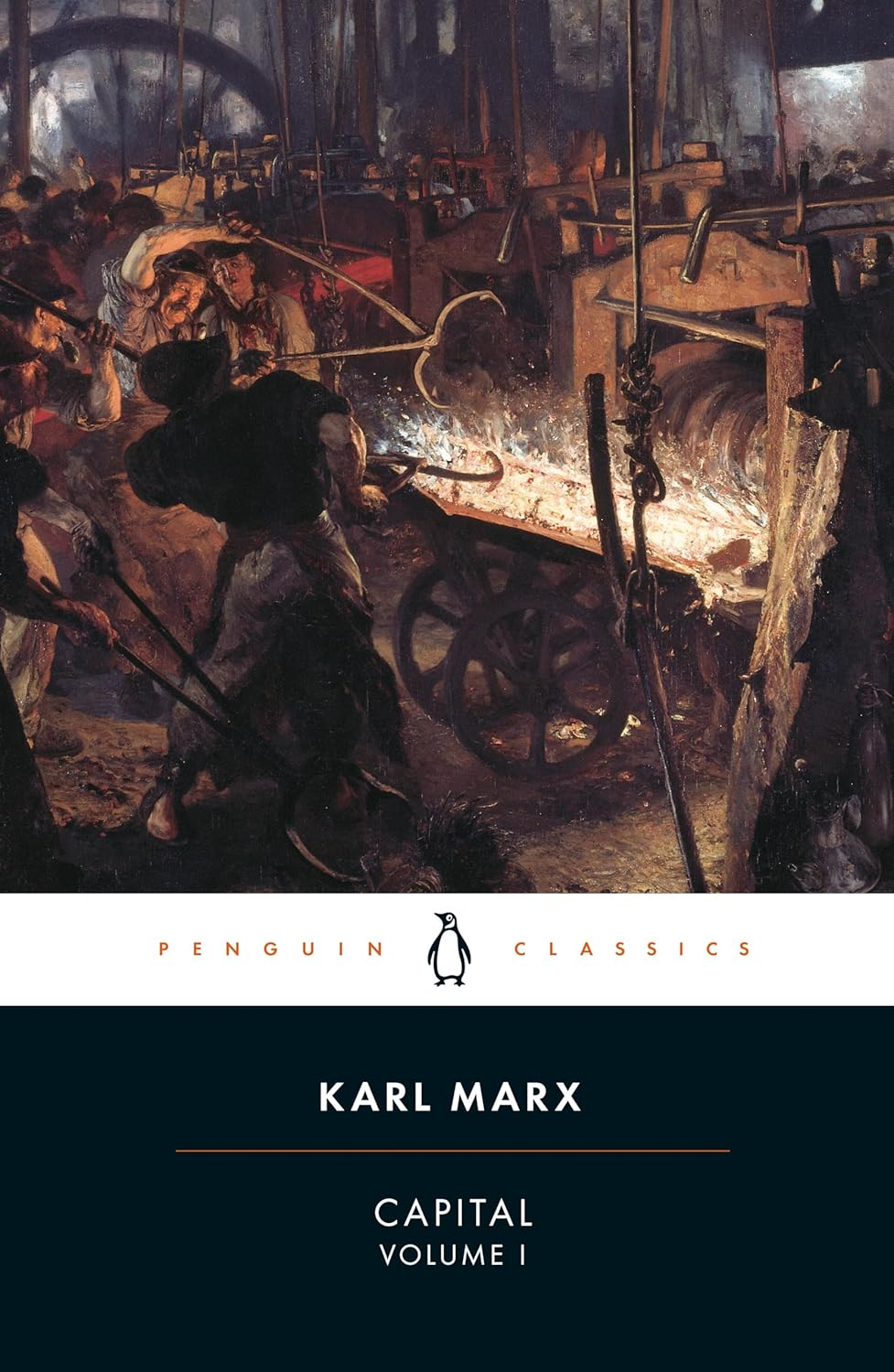
Marx, Capital vol. 1.
Beckett, Complete Dramatic Works
Wittgenstein, Philosophical Investigations
Adorno, History and Freedom: Lectures, 1964-65
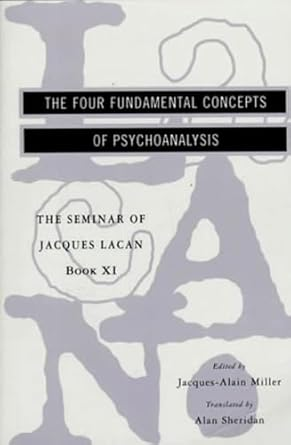
Lacan, The Four Fundamental Concepts of Psychoanalysis
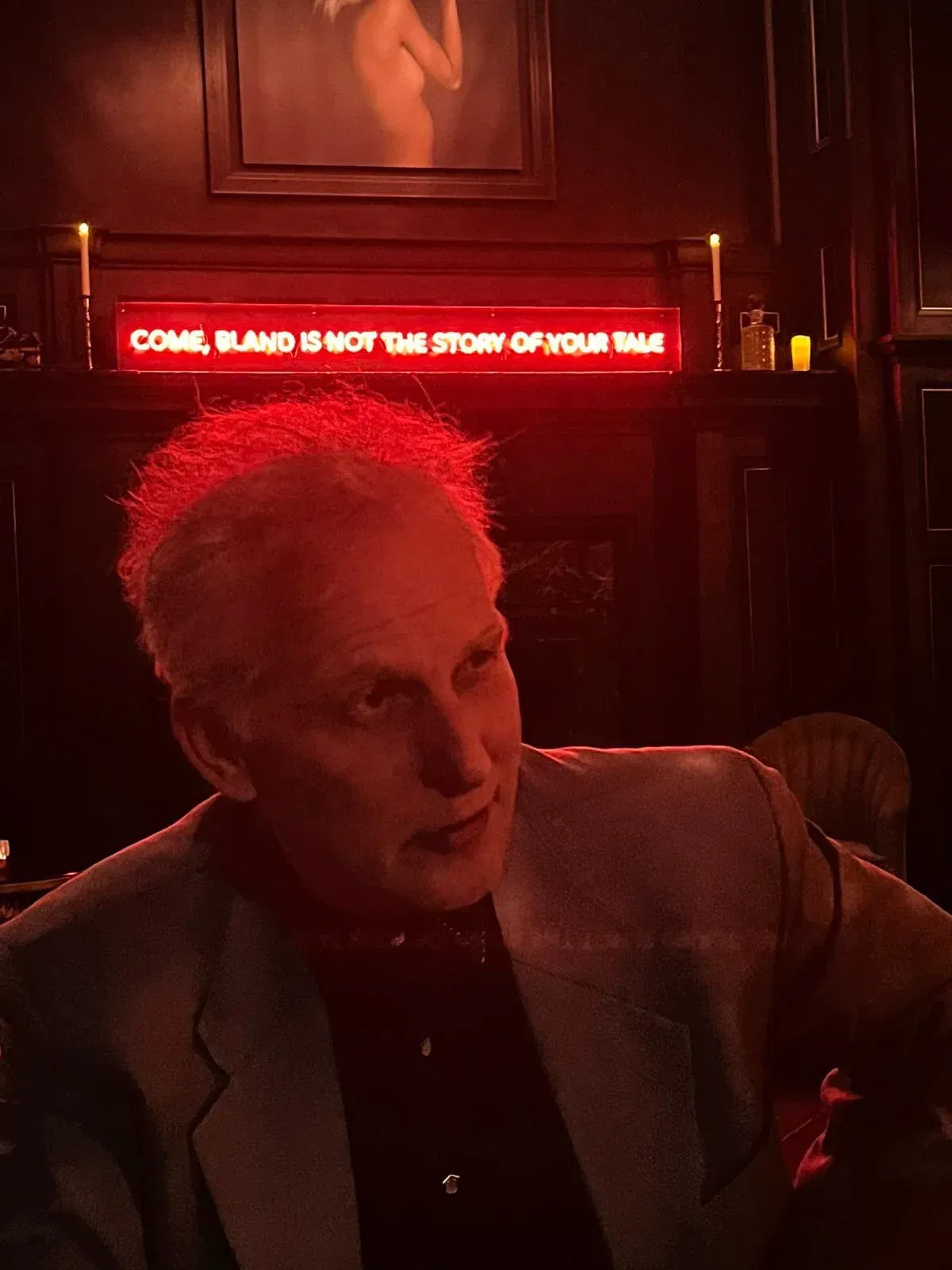
ABOUT THE INTERVIEWER
Richard Marshall is biding his time.
Buy his third book here, his second book here or his first book here to keep him biding!
End Time series: the themes
Peter Ludlow's 'Wait... What?'
Walter Horn's Hornbook of Democracy Book reviews series
Huw Price's Flickering Shadows series.
Steven DeLay's Finding meaning series
Josef Mitterer's The Beyond of Philosophy serialised
